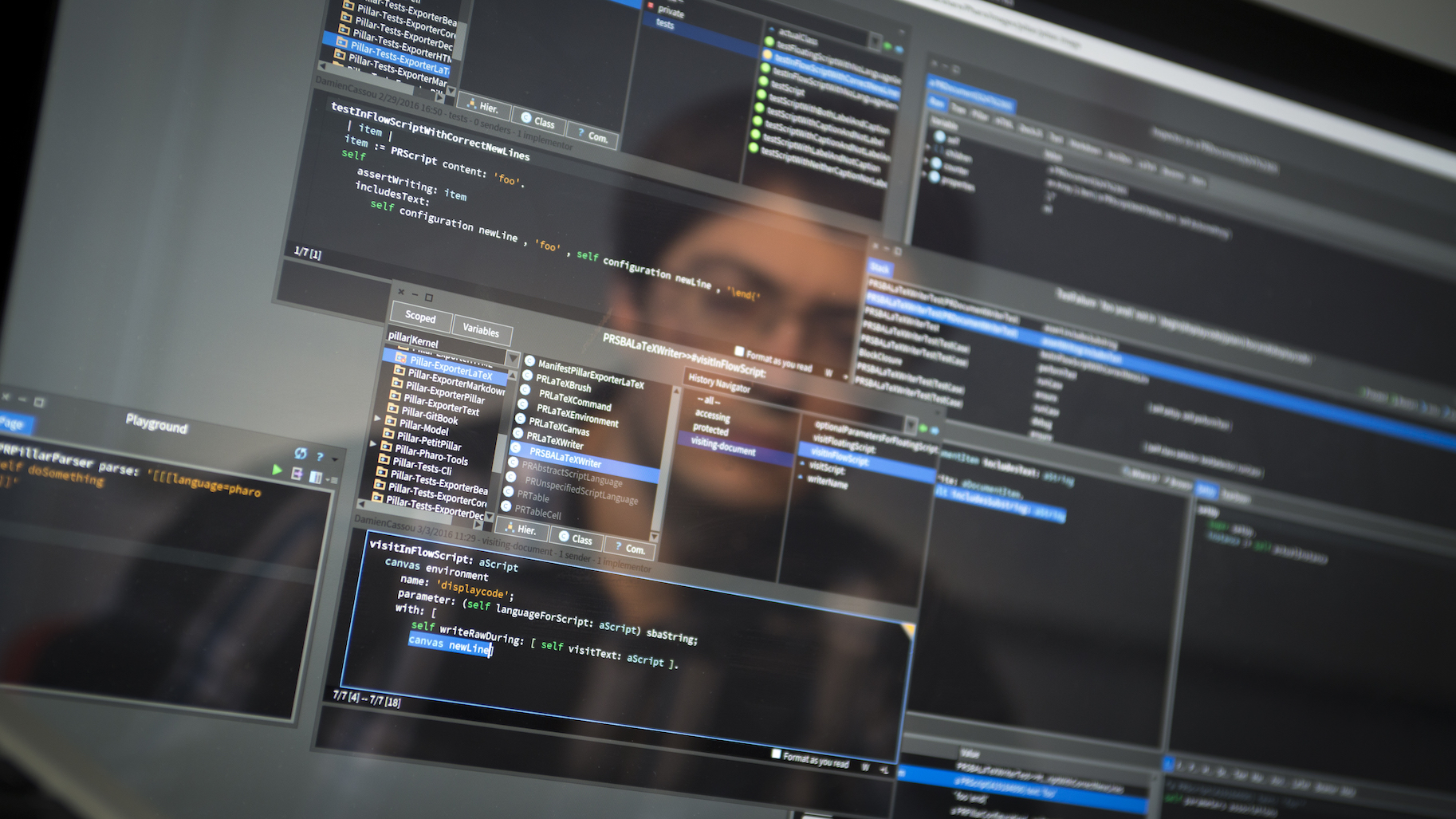InriaSoft: three years, eight active consortia and seamless adaptability to software diversity
Date:
Changed on 18/10/2022

For several years now, Inria has been conducting actions in favour of free or "open source" software. The aim is to promote and disseminate more widely the research work of Inria and its partners behind certain software that they have designed as part of their scientific mission, but whose level of technological maturity allows them to go beyond the stage of research tools and academic proofs of concept.
Free software is software that is technically and legally permissible for others to use, study, modify and duplicate for distribution, in order to guarantee certain freedoms, including user control of the program and the possibility of sharing among individuals.
This positioning prompted the institute to launch in 2017, through the Inria Foundation, a support scheme for open source software, produced by Inria and its partners, which is capable of having a significant economic or societal impact. Called InriaSoft, this programme aims to perpetuate and develop open source research software through the creation of consortia bringing together industrialists and laboratories ready to pool their resources.
"Our objective is to identify software produced by Inria research teams that has begun to have an economic impact. Then we try to move from engineering driven by the research teams to co-driving with the users," explains David Margery, head of the InriaSoft programme.
The consortia thus make it possible to organise communities of developers and users around the software, but also to finance the engineering costs necessary to support the software and to lead these communities. These consortia define their own operating rules and motivate Inria to mobilise or recruit engineers to work in close proximity to the research teams behind the various software.
Three years after its creation, InriaSoft has eleven consortia at different stages of maturity: eight are active, and three are still under construction.
Among the active consortia, six already have a global impact, such as COQ (whose members are all based in the United States), SOFA, Scikit-Learn, PlantNet, Pharo (which is the one with the most members to date, with 28 companies and 15 academics) and finally Mmg, co-developed with Sorbonne-Université and the CNRS.
Verbatim
SOFA is a great simulation tool with an active and supportive global community. The software allowed us to build prototypes fast and test our ideas early on in a number of medical robotics research projects.
Auteur
Poste
researcher at the German Fraunhofer-Gesellschaft and member of the SOFA consortium
"For TotalEnergies, participation in the Mmg consortium is above all a support for the development of the software that we use in our R&D work on the numerical simulation of complex processes. Mmg allows us to build and modify unstructured meshes to adapt them to the heterogeneities of the subsoil and improve our modelling of the geological storage of CO2", explains Jeanne Pellerin, R&D Project Leader Computational Geometry and Meshing at TotalEnergies and member of the Mmg consortium.
InriaSoft also has two other active consortia: VidjilNet, used by the biological analysis laboratories of several French hospitals in the analysis of high-throughput sequencing of lymphocytes, for the treatment of leukaemia, and involving five members, and medInria, which serves as a technological base for two startups and is used by the IHU Lyric in Bordeaux, for the processing and visualisation of medical images.
"Participation in the consortium has enabled us to integrate VidjilNet into our research and care activities. For a project on chronic lymphocytic leukaemia (CLL), given the very efficient results, we were quick to put one of these tools into production for use in care. This solution will replace our old technique and we are counting on the durability of the VidjilNet software and the consortium," explains Dr Yannick Le Bris, PharmD PhD, head of the Molecular Haematology Unit - Nantes University Hospital and member of the VidjilNet consortium.
And to best support the development of this software, InriaSoft is now focusing on tailor-made monitoring: "The consortiums all have very different ways of working, due to their user communities adapted to each software, and also very different co-developers. Our role is to adapt to these communities and to this diversity, so that we can link scientific development and software viability in real contexts under the best possible conditions," explains David Margery.
By 2023, InriaSoft's ambitious goal is to have ten global impact software products in its programme.